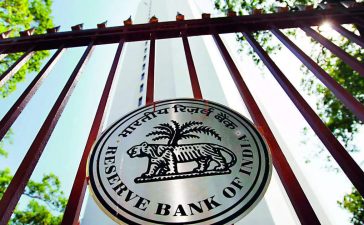The British judge Nicholas Phillips has stepped down from Hong Kong’s top appeals court, the fifth overseas judge to leave the city’s judiciary this year.
Phillips, 86, is leaving Hong Kong’s court of final appeal (CFA) after 22 years for “personal reasons” after his fourth term ended on Monday and he said he did not wish to extend it, the court said.
Phillips was among a long line of non-permanent foreign judges to serve on Hong Kong’s judiciary, including from the UK, Australia and Canada. He is the fifth foreign judge to resign from the court this year, and the 10th since the introduction of the 2020 national security law that criminalised acts of dissent and subversion. The law has been criticised as vaguely defined and the government accused of wielding it as a political weapon against the pro-democracy movement.
In a statement to the Guardian the judiciary said it was grateful to Phillips for “his support for the rule of law in Hong Kong”.
“Despite the departure of some [non-permanent judges, or NPJs] in recent years, an overwhelming majority of the serving and departed NPJs have publicly reiterated their continued confidence in judicial independence in Hong Kong and the commitment of the Hong Kong courts towards upholding the rule of law,” it said.
Two other British judges who resigned from the CFA this year – Jonathan Sumption and Lawrence Collins – both cited the new political situation in Hong Kong. In an opinion piece in the Financial Times in June, Sumption said Hong Kong “is slowly becoming a totalitarian state”.
“The rule of law is profoundly compromised in any area about which the government feels strongly,” he wrote.
The Canadian judge Beverley McLachlin also resigned this year, as did the Australian judge Murray Gleeson, who cited his age, 85. Phillips’s departure leaves six foreign judges on the CFA benches: four Australians and two from the UK, Lennie Hoffmann and David Neuberger. Pro-democracy activists and human rights groups have been calling on those remaining to also quit, saying their presence lends legitimacy to a legal system that has been undermined by the worsening security environment.
In June, Sumption said it was “no longer realistic” to think the presence of overseas judges was sustaining the rule of law in Hong Kong. At the same time, however, Neuberger told the Guardian: “Hong Kong has an impressive and independent judiciary and a thriving and able legal profession, both of which benefit the people of Hong Kong and contribute to the rule of law. They deserve support, not undermining.”
The Committee for Freedom in Hong Kong Foundation called for the remaining foreign judges to resign.
“There should be no overseas judges giving any sort of veneer of legitimacy to a legal system which is now quite clearly under the control of the Chinese Communist party, no longer independent, and no longer trustworthy,” said Alyssa Fong, the foundation’s manager and author of the report Lending Prestige to Persecution.











